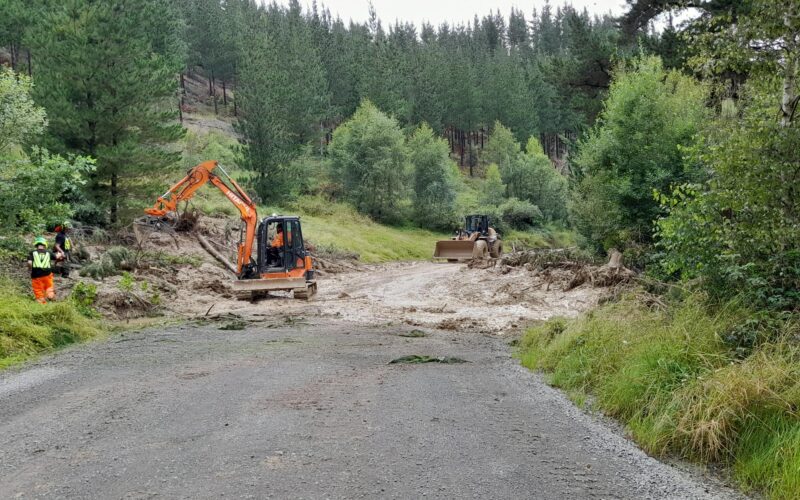Gisborne and the wider east coast are facing a long road to recovery from the devastating effects of Cyclone Gabrielle.
The region’s roading network will take years to repair and its farming community are mentally exhausted, Sandra Faulkner said at the Waikato Federated Farmers’ annual meeting south of Hamilton.
The Gisborne-based Federated Farmers national board member told the audience that roading is the region’s lifeline.
Excluding the main state highways, the region has 1899km of local roads. Of that, only 225km is in urban centers, with most being in rural areas and over 1000km of that balance is unsealed, Faulkner said.
Cost-wise, the damage is estimated to be around $465 million for the region’s roading network alone.
Sixty-one of the 413 bridges that are managed by the Gisborne District Council were destroyed in the flooding.
“You’re looking at up to three years to repair some of this,” she said.
Finance Minister Grant Robertson is well aware of the extent of the damage to the roading network, but he needs to understand is that these roads are essentially arteries between farm business units and the Treasury, Faulkner said.
“If we can’t do business, he doesn’t get any money, it’s as simple as that.”
Businesses will suffer without that access, but it is the people who will suffer more because of the increase in isolation.
“Being cut off from those you love, being unable to access your business unit – your farm – or your staff, that’s pretty challenging.”
Three months on from the disaster, Faulkner said, the region’s biggest need is people power.
“We need the Farmy Army. We’re on the wrong side of winter, we need people on the land who can help farmers and understand farming.”
Enhanced Task Force Green is doing a great job on flat horticulture land, but its people lack the expertise to work on rugged hill country farms, she said.
As well as people, cash donations to groups including the Adverse Events Trust are needed.
Mentally, farmers are exhausted, Faulkner said.
The tough, challenging season combined with the isolation of being cut off as authorities try to rebuild roading networks is breaking people.
“For those who are still struggling with isolation issues, if they don’t have easy access in and out of their family homes – that’s really wearing.”
The roading network connecting businesses on the east coast is also still extremely fragile with the prospect of being cut off again only another heavy rain event away.
Faulkner said she is also concerned about the welfare of rural contractors.
Many contractors lease land to grow maize crops for seed production. They have already paid the landowner the full lease upfront prior to planting and have either completely lost their crop, wiping out their income, or have a partially damaged crop.
Attempts to harvest that crop have left their machinery heavily damaged.
“It’s wrecking their gear and getting it condemned, so not only have they got no income, they have got gear that they have to replace.
“For these contractors, although there’s not a lot of them, their losses are massive.”
Faulkner said the need is both physical and financial.
The forestry industry has been outstanding in its initial response and willingness to help, she said. A lot of the industry’s machinery is trapped due to unaccessible roads.
Many had to be helicoptered in to reach their gear and then used it to restore roads from the “inside out” while local government worked from the “outside in”.






